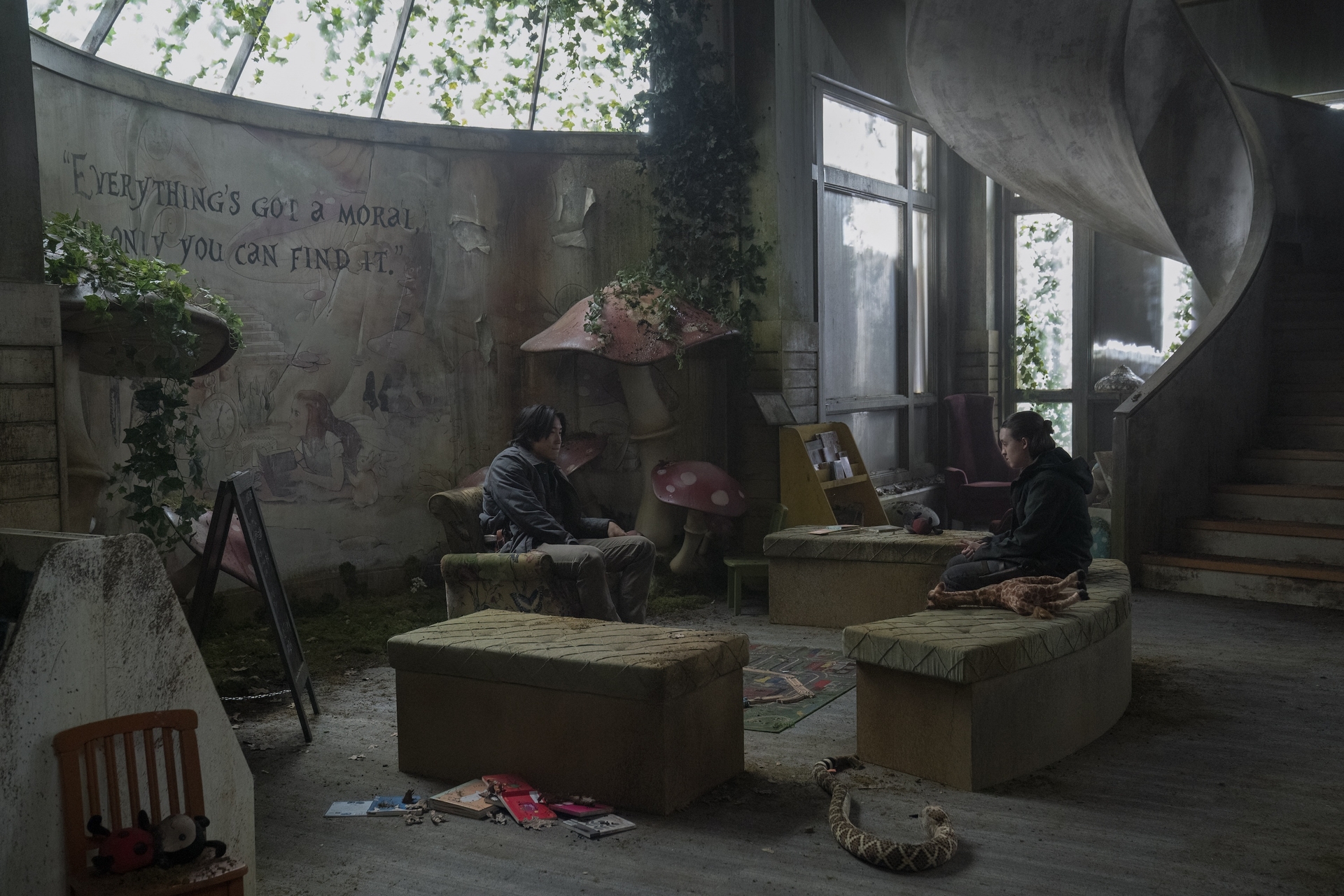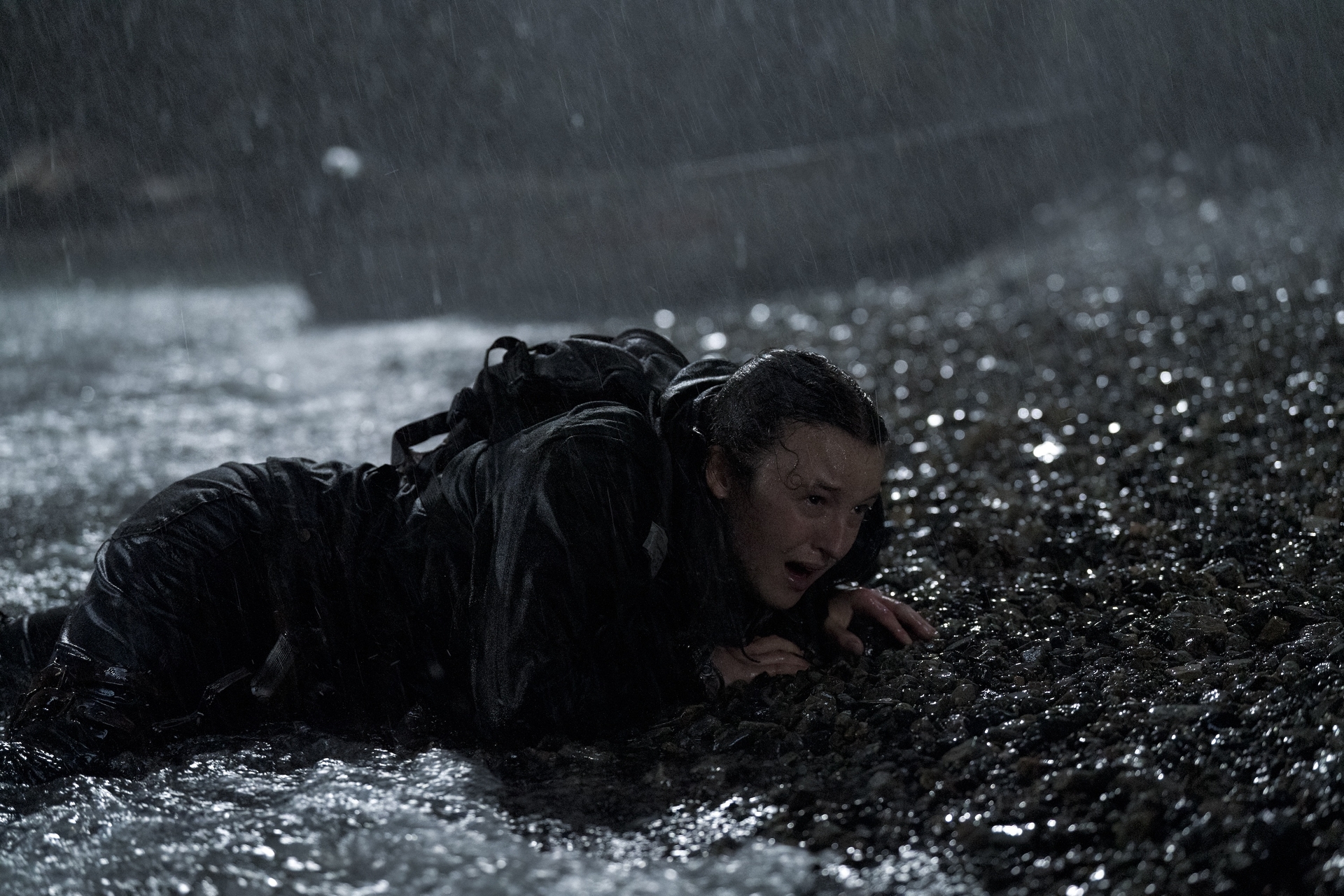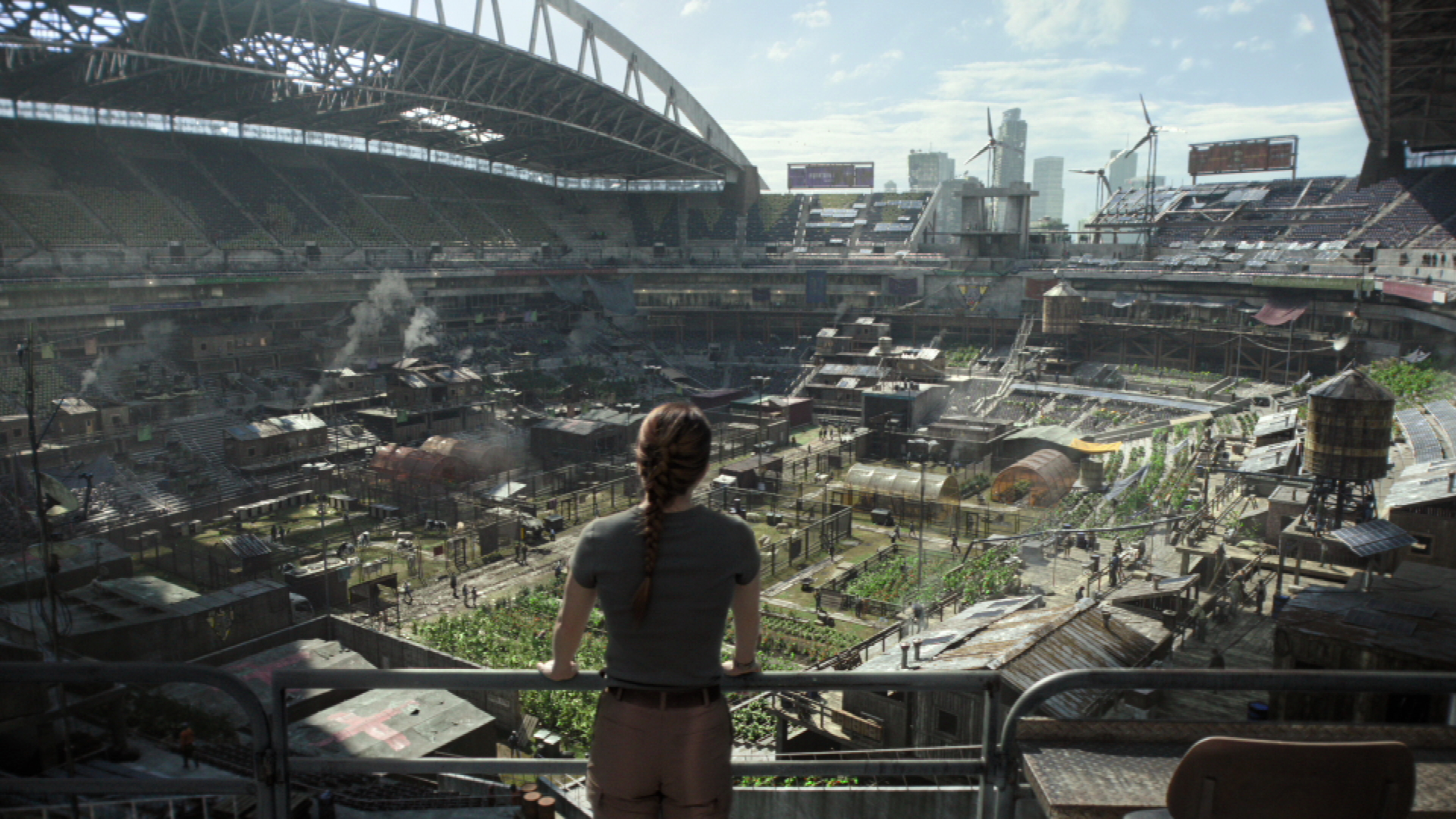Season 2 of HBO’s The Last of Us wrapped up on Sunday night, and Ars’ Kyle Orland (who’s played the games) and Andrew Cunningham (who hasn’t) are back to talk about the finale like they’ve talked about every other episode this season. While these recaps don’t delve into every single plot point of the episode, there are obviously heavy spoilers contained within, so go watch the episode first if you want to go in fresh.
Kyle: Coming back from last week’s Joel flashback, it took me a second to remember what was actually going on in “The Present” of The Last of Us as we enter the season 2 finale. Ellie marvels at how easy it was to torture a hated enemy even though the result was just two words indicating Abby’s supposed location: “whale” and “wheel.”
I don’t think Ellie’s turn to “the dark side” is unearned, exactly. But I do think that this single-minded, revenge-obsessed version of Ellie is a lot less interesting than the character we grew to love in season 1. We went into this season in a sort of adolescent family drama, and we are leaving it in post-apocalyptic Breaking Bad.
Andrew: To compare it to Breaking Bad implies some kind of gradual, nuanced transformation has taken place, where my problem with the season so far has been mostly the opposite thing. Everyone’s motivations here make sense and are consistent, to some extent, with who we know these characters to be. Ellie is rash and impulsive; Dina is lovestruck; Jesse is loyal and selfless.
It’s just that trading the first season’s story (an unlikely pairing navigates the breadth of a post-apocalyptic America, driven by the promise of a cure) for the second season’s story (Ellie’s revenge fantasy) is a huge downgrade! And I say this as someone who has been slightly warmer on the season overall than you have. They killed the most interesting character and, with him, the story’s most interesting dynamic. Whatever followed that was probably always going to be a letdown, and I’m sure you can attest to that as a game-player who has already experienced a version of all of this.

The show has spun its wheels a bit in Seattle, even with just seven episodes to fill.
Credit:
HBO
Kyle: Yes, I soured on the second game for pretty much the same reasons. But I also feel the show has been more artlessly blunt with some of its character moments. Like the way Jesse finds out about Dina’s pregnancy, and then similarly declares that he “can’t die” because he’s going to be a father. It felt like an AI trained on the TV Tropes website was writing some of these scenes…
Andrew: Listen, normally I’m all for blaming AI, but to blame AI for this one is to imply that lowest-common-denominator TV storytelling hasn’t existed for as long as the medium has. Everyone is just performing the most-predictable version of their respective character archetypes. It’s an expensive show with a talented cast and an interesting riff on the zombie apocalypse idea, so at a baseline it remains watchable. But I suppose that’s damning with faint praise.
Kyle: Yeah I didn’t mean a literal AI. I meant that as a sick burn on the human writers.
Andrew: I am trying to think of things to say to stop this from just being a litany of complaints, but unfortunately complaints are a lot of what I’ve got about this episode. I liked the visuals of Ellie’s nighttime sojourn to the abandoned Ferris wheel. I feel like there is a slightly more interesting TV show happening off to the side of this one, about the conflict between the militarized WLF types and the cultists. But as far as Ellie has been concerned so far, these factions mostly exist to chase the other faction off at the last minute, saving Ellie’s bacon again.
Kyle: And to set up contrived philosophical discussions. Like when Jesse makes the perfectly reasonable decision not to mount a doomed attempt to save a cultist when they’re outnumbered by WLF members. Then, later, Ellie twists that into Jesse chickening out because the guy “wasn’t a member of your community.” No… I’m pretty sure the 6-to-2 odds had at least as much to do with it. But Ellie needs to turn the conversation back to how Joel represents “my community… beaten to death.” It’s not subtle…

Ellie’s single-minded quest for revenge this season has been less compelling than the first season’s unlikely buddy story.
Credit:
HBO
Andrew: Yeah I found that moment frustrating because Ellie is here in direct contravention of what her community decided! And it is her community, as a group of people who have looked out for her and provided for her for years, whether she wants to admit that or not. She only uses this idea of “community” with Joel selectively, as a cudgel, so she can do what she already wants to do.
By letting her have the last word on it, the show tacitly endorses her read of the situation, and it’s a variety of vigilante justice that TV audiences have been primed to sympathize with, but man it just falls flat for me.
Kyle: I was also perplexed by Ellie’s brief shipwreck storyline, which led to her being put in a noose by angry cultists. Then she gets saved just seconds from death by a deus ex machina problem in “The Village” that requires the cultists to immediately put her execution on hold and run away. And after all that she just… hops in a boat and goes off to the next completely unrelated bit of the story.
I suppose they’re probably setting things up to provide more context for that scene in the next season, but in the context of this episode as it stands it was just a baffling way to use up 10 minutes or so.
Andrew: Yes I am assuming all the time spent setting up these cultists is going to pay off somehow, eventually, but it hasn’t happened yet.
The episode’s other Big Emotional Moment comes when Ellie catches up with a couple of members of Abby’s crew (I imagine a Hells Angels-style leather jacket, emblazoned with ABBY’S CREW on the back) and ends up killing them both, including a heavily pregnant woman whose dying breaths are spent trying to talk Ellie into cutting her baby out of her. There’s some kind of lesson here, about the ultimate futility of revenge, about the sins of the parents, about what perpetuating the cycle of violence ultimately gets you. We’ll see if Ellie ends up absorbing any of this in the end.
In both her response to the underground torture scene and here, Ellie seems continually shocked that her quest for vengeance might involve any kind of collateral damage to anyone other than Abby.
Kyle: Yes, this bit is culled from the game, but there she just discovers the unborn baby after both of Abby’s companions are already dead. The whole “cut my baby out of me before I die” thing was seemingly crafted to make this just that much more emotionally scarring for Ellie. But as you said, she doesn’t really get to spend any time absorbing any of that, because we’re moving right on to the next plot point.
I understand how and why we don’t get to have 23 episode seasons of TV shows anymore, but it feels like some of the 17 side stories they introduce in this episode (and many more throughout this season) could have stood to have some more time to breathe.
Andrew: I was astounded—astounded! That this was our season finale, because it feels like such a transitional piece-moving episode, and because we’re only seven episodes in. I get that we are stretching one game into two seasons here, but the nine-episode first season was already short, and then this one’s even shorter. Can we just agree to return to 13-episode seasons, please?
Anyway, if your main complaint about the Seattle section of the show has been “too much wheel spinning,” this episode’s big, dramatic cliffhanger is bad news for you. Every day Ellie has spent in Seattle has gotten some big Majora’s Mask-esque “DAY ONE, DAY TWO, etc” subtitle, and now we know why. The beginning of next season is going to show us the events of these three days—but from Abby’s perspective!
I guess I caused this by saying “what if Abby were a more fully formed antagonist” to my monkey’s paw at the start of the season. But I can’t say that this has me on the edge of my seat about season 3, this little slip of a teaser at the end of an episode that I didn’t know was the season finale until after the fact.

Abby oversees her empire.
Credit:
HBO
Kyle: Yes, this structure also apes the second game, which switches to Abby’s backstory halfway through (though there’s no “season break” in the middle there). The dramatic reveal of Abby’s community being housed in a football stadium is one of the most memorable moments of the game and was a rare highlight of this episode, I felt.
Before that, though, we get the inevitable and deadly confrontation between Ellie/Jesse/Tommy and Abby. After seeing it in the show, I had to go back and rewatch how it plays out in the game because something just felt off in the translation. Sure enough, the TV show production added Ellie screaming “no no no” and the sound of a gunshot before that dramatic cut to black and transition to Abby’s earlier POV.
As usual, it feels like the show has a need to just crank up the drama at every turn in an effort to make sure people tune in next week (or next season).
Andrew: Let’s return to that divide between me as a show-watcher and you as a game-player as we wrap up.
I find myself with more gripes than praise here at the end of the season. There are still a lot of things I like here—like I said, the fictional universe is compelling enough to keep it watchable, and for all my complaints about Ellie the character, Bella Ramsey as a performer is doing the best work they can with sort of underwhelming material (predictably, some corners of the Internet have decided to harangue Ramsey relentlessly, partly because they’re a non-binary person who has decided to exist in public).
But my impression is that my biggest problems with this season, from the killing of Joel to the single-minded vengeance arc, are all downstream of story decisions made years ago during the development of The Last of Us Part 2. Normally the complaint with an adaptation is that the show or film’s creators are ruining the story somehow by being insufficiently faithful to the source material and losing something in the process. But it feels like the show’s problems are mostly inherited from the game—in other words, that the show is being too faithful to underwhelming source material. Is this a fair assessment, or am I missing something?
Kyle: I’d say that the structural problems of the show are mostly derived from the game’s decision to transition from “buddy adventure” to “revenge saga” as we’ve discussed ad nauseam. But a lot of the nitty-gritty problems of this season—stuff like pacing, flow, character development, etc.—actually come off a little worse because of decisions to add or change things for the show.
After season 1, I was hopeful that some light-touch changes could help redeem a game that I did not enjoy much. Instead, I think they somehow made it worse.
Andrew: Oops!
Well, there’s always next season. Maybe all of our complaints will be substantively addressed and then some. The only thing we can say for sure is: We haven’t seen the last of The Last of Us.
Kyle: In the end, the real Last of Us was all the people we killed along the way.
Source link
#problem #season #faithful #adaptation






























